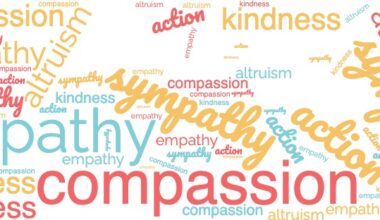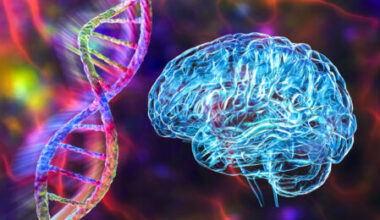Various people have asked if it’s possible to treat or cope with trauma-related dissociation. Do you know what I think is impossible? Treating or coping with something you don’t fully understand. This is why this article explains in detail how trauma can cause dissociation. However, providing you with enough information on how to cope or get proper treatment.
Key Takeaways
- Dissociation is when you disconnect from yourself, your thoughts, and your surroundings. It takes away your sense of reality for that period of time.
- Flashbacks of the traumatic event or experience, suddenly losing touch with things happening around you (zoning out or daydreaming), and having a sense of disconnection from yourself are some symptoms of trauma-related dissociation.
- The types of trauma-related dissociation are Depersonalization, Derealization, Dissociative Amnesia, and Dissociative Identity Disorder.
- Some medications might be added to support the psychotherapy treatment process.
What is Dissociation?
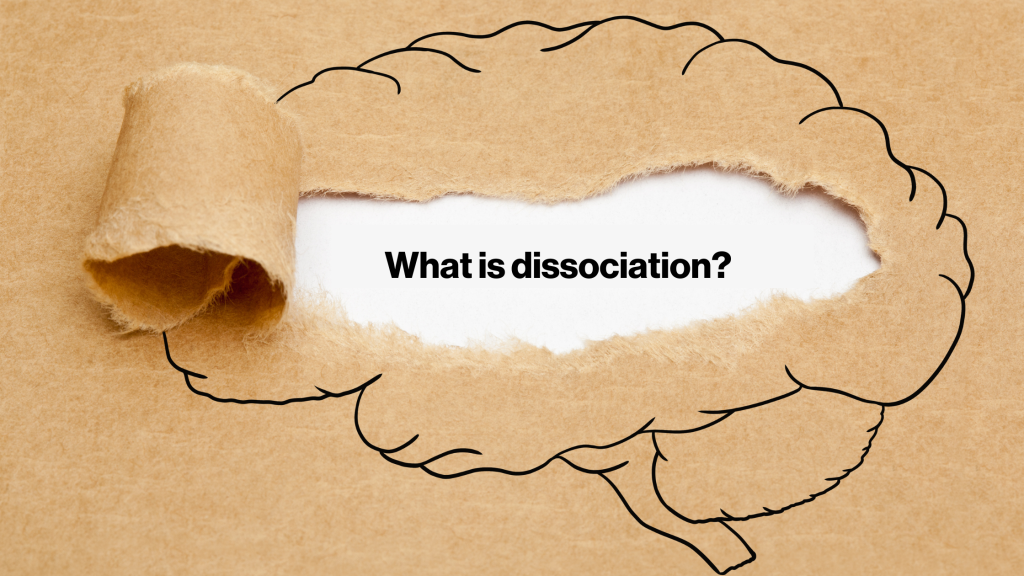
Dissociation is when you disconnect from yourself, your thoughts, and your surroundings. It takes away your sense of reality for that period of time. Different people experience dissociation differently. Some people refer to this as ‘zoning out’’. It is referred to as the mental escape when the physical is unable to help. It is a way the mind copes with overwhelming stress. People dissociate occasionally, but it becomes a problem when it becomes involuntarily constant and affects day-to-day activity. This is called dissociation disorder.
What is Trauma?
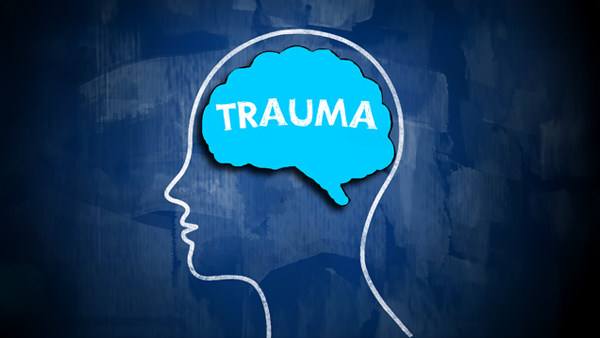
Trauma is the response to an event that is intensely distressing. Individuals are wired to cope in different situations but when a traumatic event occurs, the brain usually loses its ability to cope. When you experience traumatic events, it might not be easy to understand the rush of emotions. Hence, the shock and denial. Trauma has quite a number of adverse effects. Some of them include flashbacks, detachment, and depression. Some events that might lead to trauma are emotional and physical abuse, accidents, natural disasters, and childhood neglect.
Psychologists help trauma patients learn effective coping mechanisms. This is however to prevent them from developing one like dissociation disorder.
What Is the Link Between Trauma and Dissociation?

When you touch a hot surface, a reaction follows immediately. It is called fight or flight. It is our body’s way of protecting us from danger. This can be likened to when you experience something traumatic. Your brain tries to protect you the way it knows how to. That is where dissociation comes in. It separates you from whatever is happening. You begin to watch yourself like a movie, and everything seems unreal.
I know the question you have in mind. ‘If dissociation was such an angel why do we even need to cope?’ Well, that is because when dissociation happens consistently it becomes a problem and disrupts daily activities. That is to say that, even when the trauma is no more significant than before, the person still dissociates.
Trauma-Related Dissociation Symptoms

Below are some symptoms of trauma-related dissociation. These are some of the things you would look out for to know if you are experiencing trauma-related dissociation.
- Flashbacks of the traumatic event or experience.
- Suddenly losing touch with things happening around you (zoning out or daydreaming)
- Having a sense of disconnection from yourself
- Sudden loss of sense of time and place
- Amnesia
- Emotional numbness
- Not being able to identify reality
Types of Dissociation
When people experience dissociation as a result of trauma, they experience it in different ways. This is why it’s important to understand the different forms it may appear. According to DSM-5 …..
Depersonalization
Depersonalization involves the feeling of being detached or disconnected from yourself. At this point, you are no longer in tune with your thoughts. This is the brain’s way of coping with distress. For instance; when a person was abused as a child, the person might start disconnecting from reality in order to cope.
Derealization
Derealization is when you feel that the world around you is unreal. That is to say that you are disconnected from your environment. It feels like you are watching your own life like a movie. When someone experiences trauma, they distance themselves from their environment in order to cope.
Dissociative Amnesia
This is when people forget significant information about their lives. It also involves forgetting details about an experienced traumatic event.
Dissociative Identity Disorder
When you consistently have more than two personalities. These personalities may or may not know each other. However, in the person’s mind, they are different people. These personalities control the person’s actions depending on the situation. That is why their actions can’t be consistent. When a person has a traumatic experience, they may decide to have another personality as a coping mechanism. To them, that other personality protects them from harm.
Coping with trauma-related dissociation
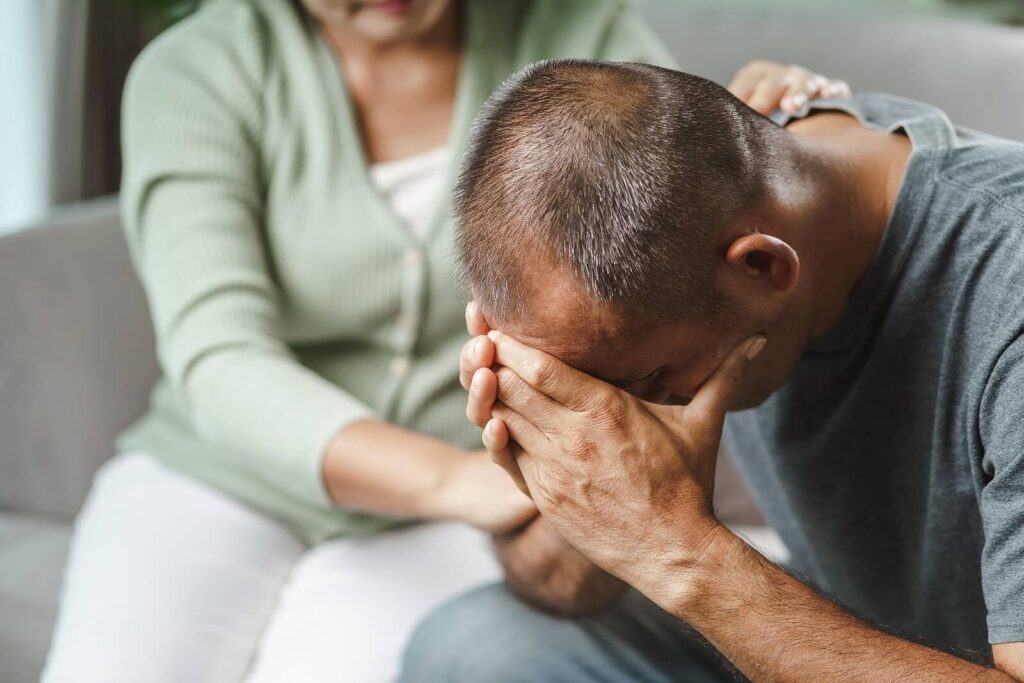
Dissociation is a coping strategy, which I earlier mentioned usually helps to avoid feelings of intense guilt, shame, helplessness, fear, or pain. However, when you continue to avoid these feelings by always dissociating then it will start creating some problems for you.
If you have trauma-related dissociation, there are sure ways to cope and take care of yourself.
- First, you must be getting psychological support from a professional.
- Identify your triggers and try to avoid them.
- Mindful breathing with a focus on how you inhale and exhale (meditation)
- Remove your footwear and feel the floor or walk barefoot.
- Paying attention to sounds in your present environment
- Recite a poem or song you know very well
- Try to feel something by touching them or being wrapped around them.
- You can sniff something that has a significant scent.
- You can spend some time with your pet
Keeping a Journal
This is to help you document your dissociation journey in detail. I mentioned identifying your triggers. Journaling is one way to do it. In your journal, you need to be specific about how your dissociations happen and everything that happens before and after it. Keeping a journal will help you remember important parts of your experience and how to improve going forward.
Get Enough Exercise
There is no doubt that exercises help our mental and physical health. It doesn’t have to be strenuous, you can start with very basic daily exercises. It will help you say in tune with your mind and environment.
Grounding Technique
This can be done by finding ways to remain present at the moment. There are a couple of things that could help you achieve that. For instance, put your hands in water, pick up items near you, take your short walks, or play a memory game.
Engage Your Senses From Time to Time
Try to label the sensations going on in your five senses. For instance, naming things you see, feel, hear, perceive, and taste. It’s a great way to keep yourself present in your environment.
Join a Support Group
You can search for support groups in your area or online. You can also ask your psychologist to help you with that. This would help you understand that you are not alone. You can also learn from others as well. Mmentswithchika might be able to help.
Coping With Trauma-Related Dissociation Free PDF
This book is suitable for therapists and clients because it contains a user-friendly approach to navigating through trauma-related dissociation. There are very clear explanations, practical skills, and professional ideas of different skilled therapists. It also offers practical exercises on healthier ways to cope with a traumatic experience. This e-book can serve as a guide or manual for therapists and a workbook for people who have a trauma-related dissociative disorder. I believe that this book can help you become more in control of your mind and body.
About the Authors
Suzette Boon, PhD, is a clinical psychologist and psychotherapist currently working in private practice in Maarssen, the Netherlands.
Kathy Steele, MN, CS, is in private practice with Metropolitan Psychotherapy Associates in Atlanta, Georgia.
Onno van der Hart, PhD, is a Professor Emeritus of Psychopathology of Chronic Traumatization.
Download Coping with trauma-related dissociation -free pdf
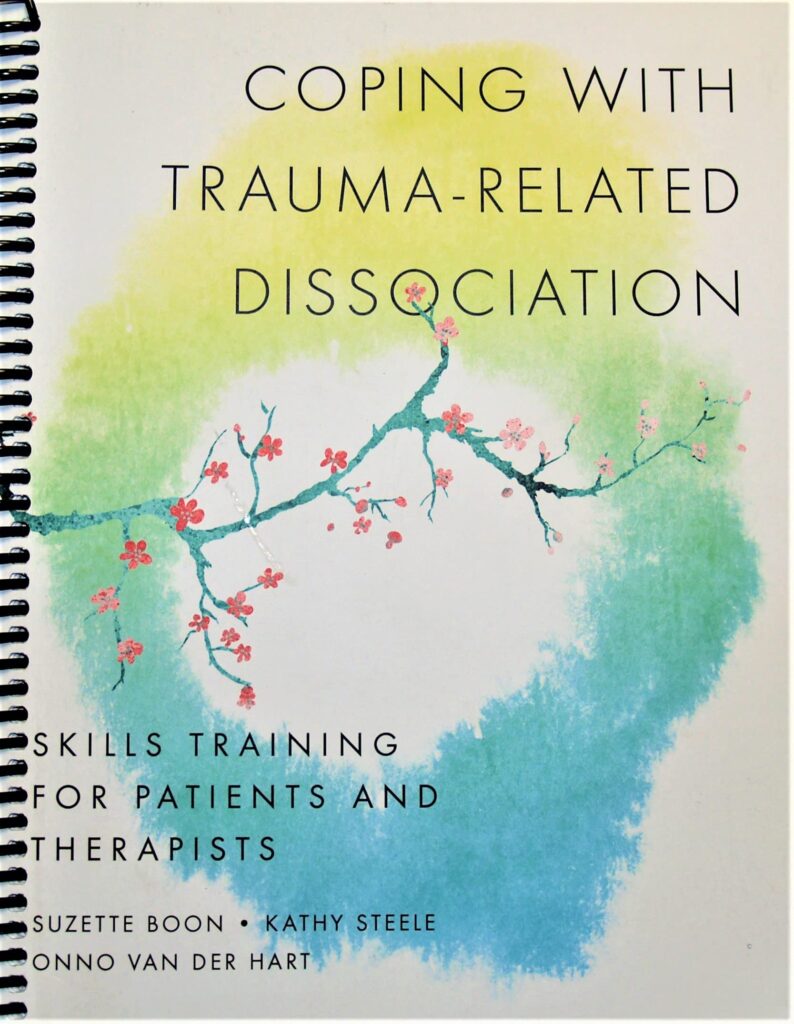
Treating Trauma-Related Dissociation

Every mental health problem should be addressed by a mental health professional. In the case of treating trauma-related dissociation, psychotherapy has the most important role to play. Some medications might be added to support the treatment process.
- Psychotherapy
- Medication
Psychotherapy
This form of therapy is usually interactive between the therapist and the patient. It is the primary treatment of trauma-related dissociation. The therapist will have an interactive session with you. This session will be geared towards you figuring out healthier ways to cope and gradually giving up dissociation. The therapist also tries to address the trauma healthily and less overwhelmingly.
Medication
Medications are mostly used to help you manage some of your symptoms. Your doctor may prescribe antidepressants, mood stabilizers, or anti-anxiety medications.
What Does Trauma Dissociation Feel Like?
Some feelings, behaviors, or memories may not feel like your own. These may seem like they come from or belong to someone else. People who experience an altered sense of identity can feel confused or unsure about ‘who they really are’.
How Do You Snap Out of Dissociation Fast?
To stop dissociation, start by recognizing when it’s happening. Use grounding techniques to stay in the present, such as focusing on your breathing or holding a familiar object. Journaling can also be effective for identifying triggers and managing them.
Conclusion
Coping with trauma-related Dissociation might be difficult at first but it’s doable. I would ask you to start by addressing the trauma with your therapist. That way you could be less triggered by events surrounding the trauma.
Don’t be so hard on yourself. Be kind and patient with yourself. Learning healthier ways to cope might seem slow but then it’s very effective especially when you are following through with your professional help. Don’t forget to pat yourself on the back when you make a little progress.
Related Articles
- Self-Defeating Personality Disorder-Explained in Details
- Cognitive Symptoms of Schizophrenia: All You Need
- Can You Grow Out of Autism? How It Works & All You Need





